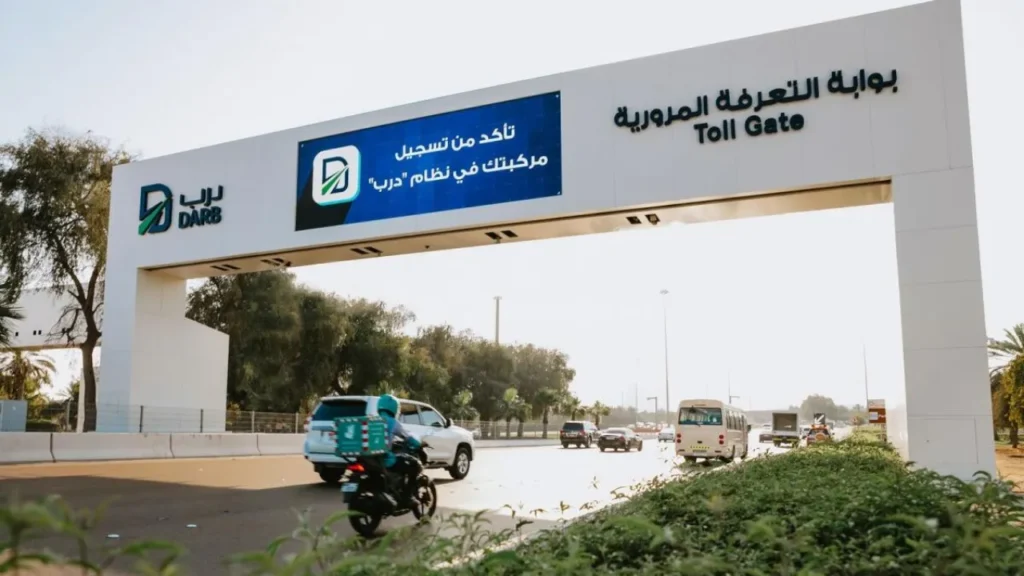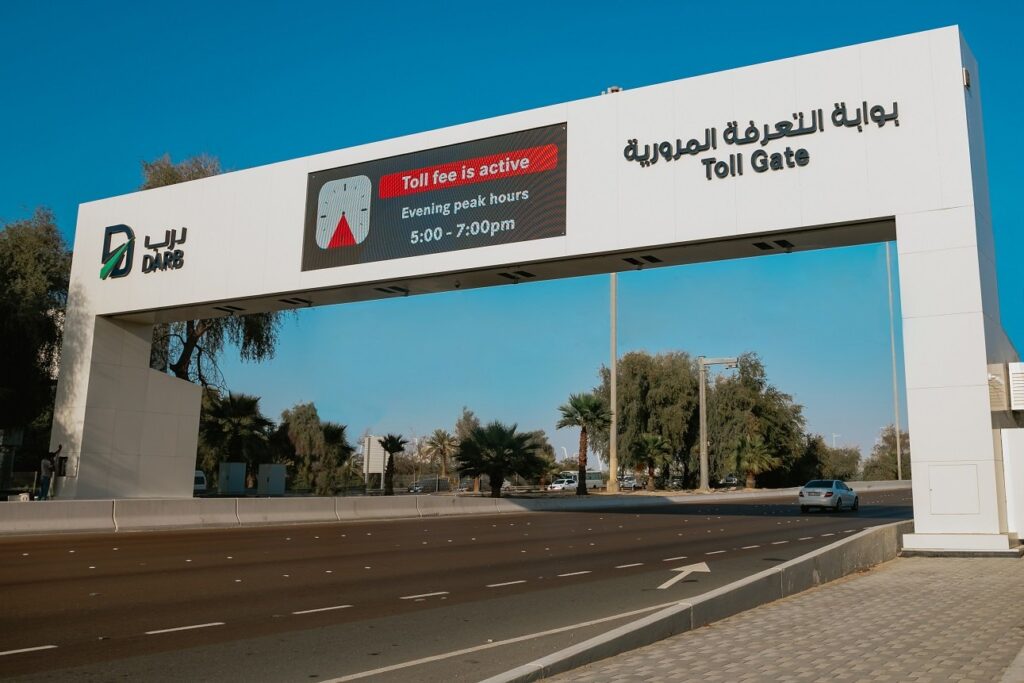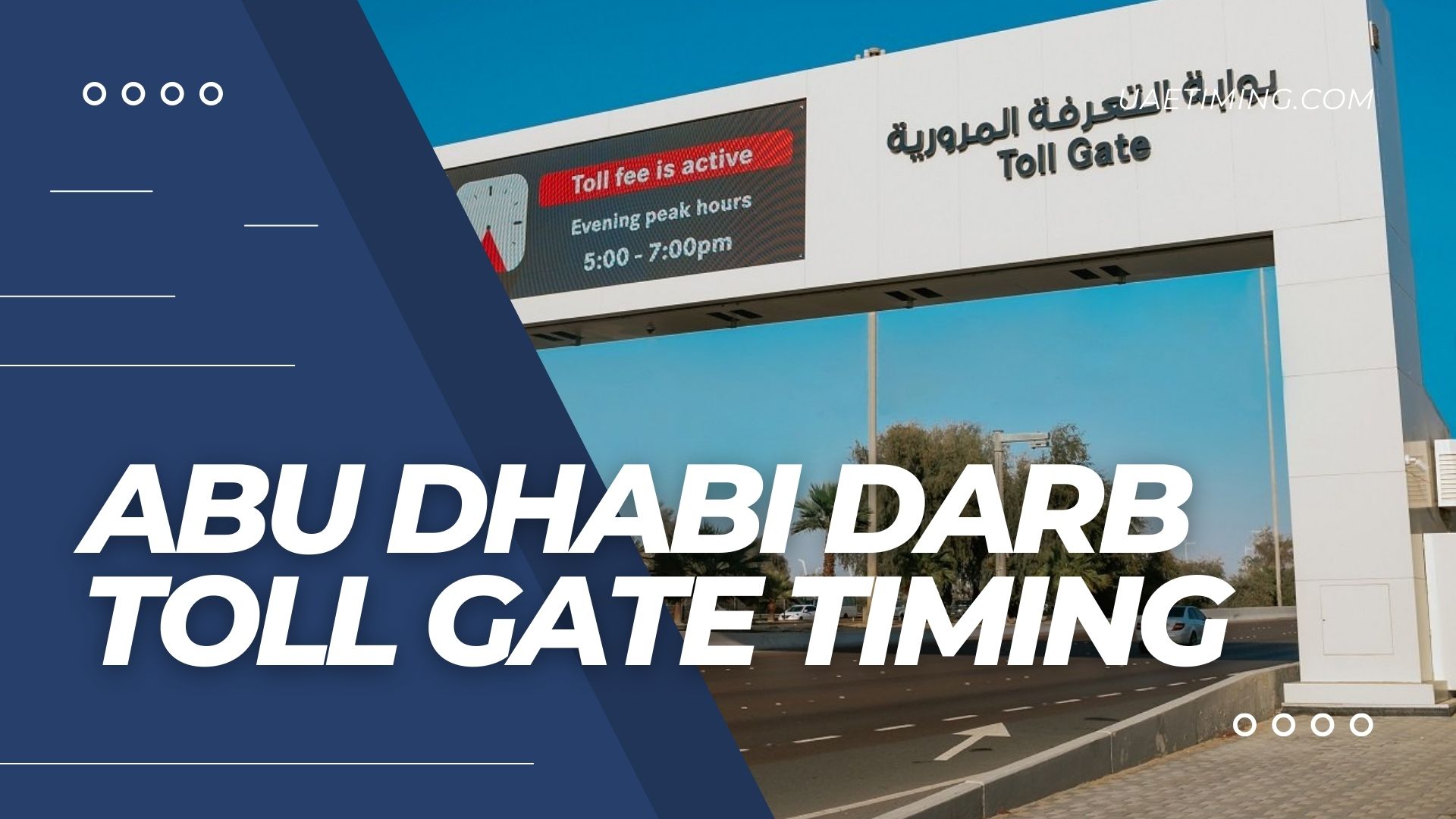Navigating the roads of Abu Dhabi has become more seamless, thanks to the DARB toll system. Whether you're a resident or a visitor, understanding how and when toll charges apply is essential for avoiding fines and ensuring a smooth driving experience. In this guide, we'll walk you through everything you need to know about DARB toll gate timings, locations, and best practices for staying toll-compliant.

What Are DARB Toll Gates?
DARB toll gates are part of Abu Dhabi’s traffic management system, designed to ease congestion and regulate the flow of vehicles during peak hours. Every time you pass under one of these gates during operational hours, your vehicle’s number plate is scanned, and a toll fee is deducted from your DARB account.
Key Toll Gate Locations:
- Sheikh Zayed Bridge
- Mussafah Bridge
- Sheikh Khalifa Bridge
- Al Maqtaa Bridge
These toll gates cover the main entry and exit routes on and off Abu Dhabi island, making them vital checkpoints for commuters.
DARB Toll Gate Timings
Understanding the toll gate timings is crucial for planning your daily commute and avoiding unexpected charges. DARB toll gates are operational during peak traffic hours from Monday to Saturday, ensuring smooth travel during busy periods.
- Morning peak hours: 7:00 AM to 9:00 AM
- Evening peak hours: 5:00 PM to 7:00 PM
No Toll Charges On:
- Sundays
- Public Holidays
During Ramadan:
- Morning hours: 8:00 AM to 10:00 AM
- Afternoon hours: 2:00 PM to 4:00 PM
This carefully structured timing system helps alleviate traffic congestion during high-demand hours, providing a more efficient road experience for everyone.
Also See: Water Taxi Dubai: Updated Fare and Timetable
How Much Does DARB Toll Cost?
The toll fee at any of the DARB gates is AED 4 per crossing during peak times. However, there is a daily and monthly cap on toll charges to prevent excessive fees for frequent users.
Daily Cap: AED 16 per vehicle
Monthly Cap:
- AED 200 for the first vehicle
- AED 150 for the second vehicle
- AED 100 for subsequent vehicles
By understanding these caps, drivers can budget their trips more effectively.

DARB Toll Payment Options
Managing your DARB account is simple, thanks to various payment methods that ensure you stay toll-compliant.
Payment Methods Include:
- Credit/Debit Card: Pay directly through the DARB app or online portal.
- DARB Kiosks: Located at convenient spots throughout Abu Dhabi.
- Online Banking: Manage your payments through supported UAE banks.
It’s important to monitor your DARB account balance regularly, as insufficient funds can result in fines. If your account runs low, be sure to top it up through one of the convenient payment methods to avoid penalties.
Fines for Non-Compliance
Failure to comply with the DARB toll system can lead to hefty fines. Some of the most common violations include driving through a toll gate with an unregistered vehicle or insufficient balance in your DARB account.
Common Fines:
- Unregistered vehicle fine: AED 100 on the first day, escalating to AED 200 on the second day, and AED 400 on the third day.
- Insufficient balance fine: AED 50 per day for vehicles not registered in Abu Dhabi with an insufficient DARB balance.
- Tampering with number plates: AED 10,000 fine.
Staying on top of your registration and account balance is key to avoiding unnecessary fines.
DARB Toll Exemptions
Some vehicle categories and individuals are exempt from toll fees, including:
- Public transport buses
- Emergency vehicles
- Motorcycles
- People of Determination (with approved exemption)
To apply for an exemption, eligible individuals must submit the necessary documents through the DARB portal or app.
Read More: Water Taxi Abu Dhabi: Fare and Timetable Information
Tips for Avoiding DARB Toll Fees
While paying tolls is often unavoidable, there are a few strategies you can use to minimize your expenses:
- Plan Your Trip: Try to travel during non-peak hours when tolls don’t apply.
- Use Exemption Categories: If eligible, apply for exemptions early to ensure you’re not charged unnecessarily.
- Monitor Traffic: Use navigation apps like Google Maps or Waze to track traffic patterns and determine the best time to travel through toll areas.
By planning ahead and staying informed, you can reduce the amount you spend on tolls each month.
Understanding the Difference Between DARB and Salik
While DARB operates in Abu Dhabi, Salik is Dubai’s toll system, and it functions differently. In Dubai, vehicles must display a Salik tag, which is scanned as they pass under toll gates. Meanwhile, DARB in Abu Dhabi uses a number plate recognition system, meaning there is no need for a physical tag.
If you're traveling between the two Emirates, be sure to register your vehicle with both systems, as Salik tags are not valid in Abu Dhabi, and DARB registration is not valid for Dubai.

Navigating Abu Dhabi’s roads is easier when you fully understand the DARB toll system. By staying aware of the toll gate timings, monitoring your account balance, and understanding the available exemptions, you can ensure a hassle-free driving experience. Make sure to register your vehicle on time, stay informed of the rules, and plan your trips wisely to keep toll costs to a minimum. Now that you know everything about the DARB toll system, you’re ready to hit the road with confidence!




